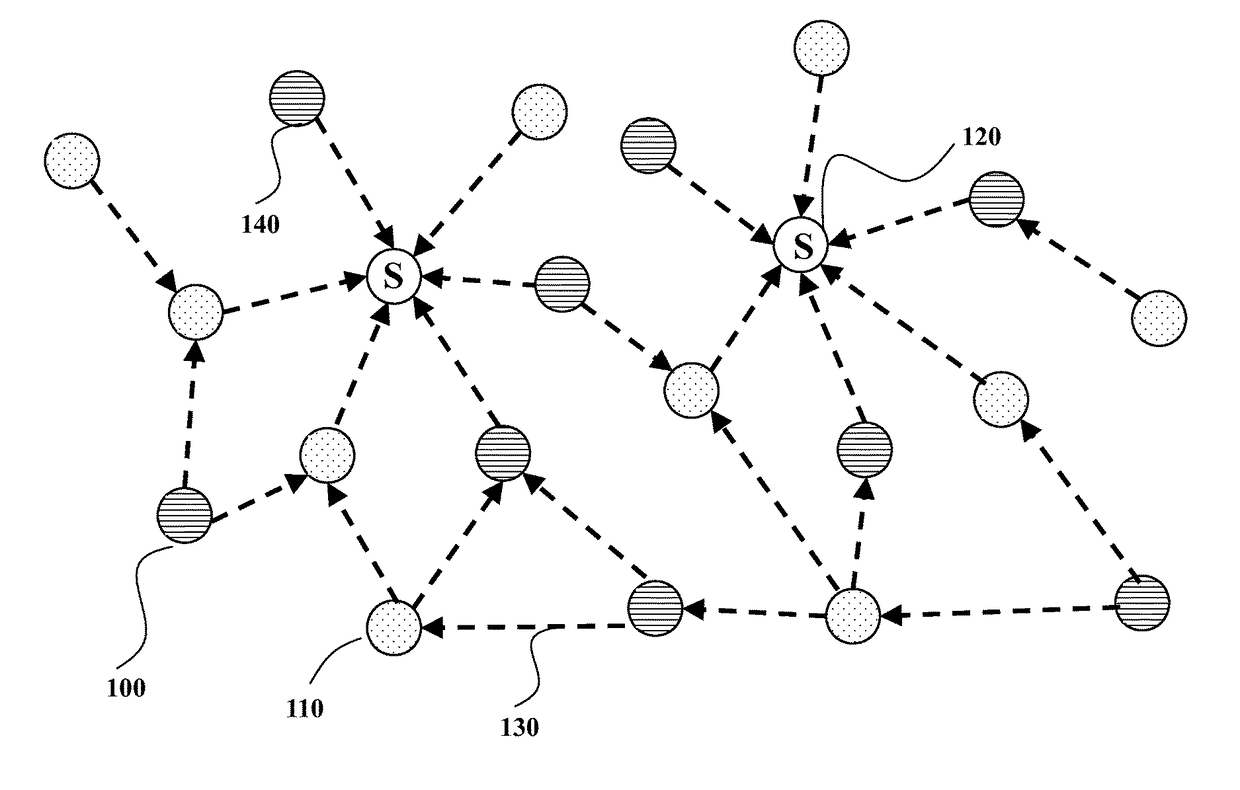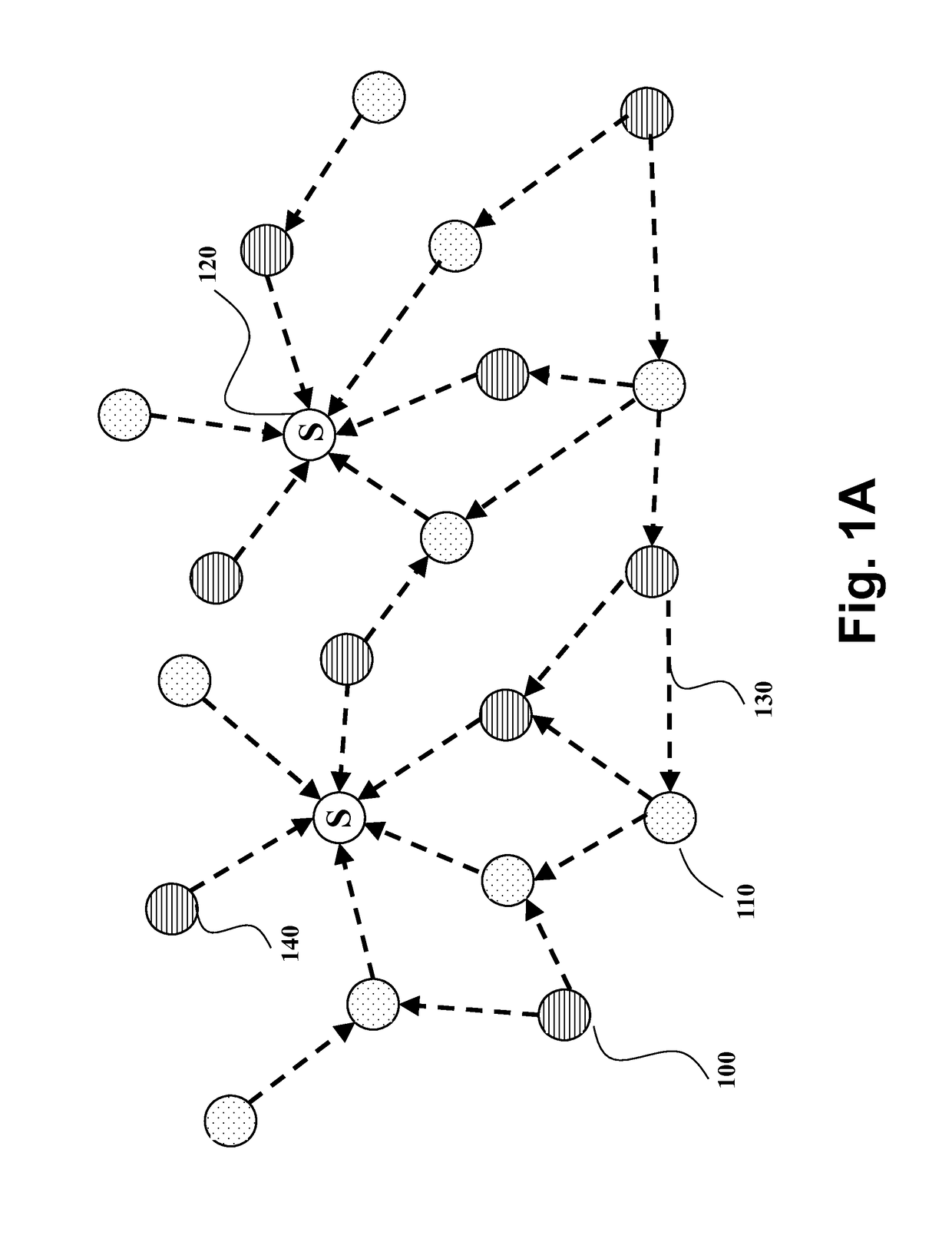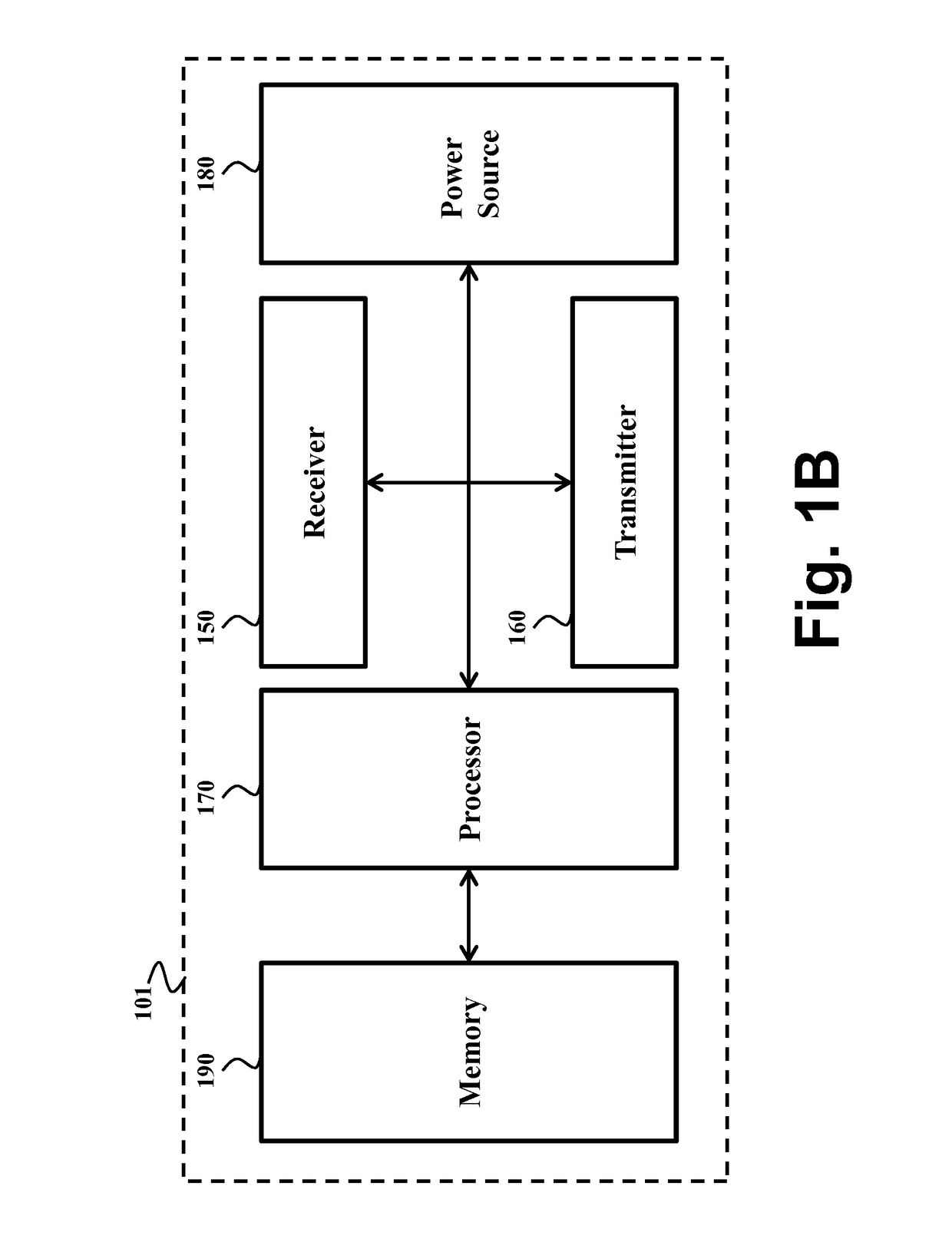Energy efficient management of heterogeneous multi-hop wireless networks
a wireless network and heterogeneous technology, applied in power management, data switching networks, high-level techniques, etc., can solve the problems of increasing idle time of nodes and energy was
- Summary
- Abstract
- Description
- Claims
- Application Information
AI Technical Summary
Benefits of technology
Problems solved by technology
Method used
Image
Examples
Embodiment Construction
[0028]FIG. 1A shows a schematic of an example of heterogeneous wireless network that uses embodiments of the inventions. The network includes data nodes such as battery powered nodes (BPNs) 100 and mains powered nodes (MPNs) 110. The network also includes sink nodes (S) 120. The nodes form a wireless mesh network using directed wireless links 130, where the general flow of data packets is from the data nodes (battery powered nodes or mains powered nodes) to sink nodes, although control messages can be sent in either direction.
[0029]The network is a wireless multi-hop network in which packets are exchanged between the sink node and the data nodes in a multi-hop manner such that there is at least one data node exchanging the packets with the sink node through at least one intermediate data node relaying the packets between the data node and the sink node. For example, some nodes, e.g., 140, can transmit data packets directly to a sink node. Some of nodes, e.g., 100 and 110, cannot dir...
PUM
 Login to View More
Login to View More Abstract
Description
Claims
Application Information
 Login to View More
Login to View More - R&D
- Intellectual Property
- Life Sciences
- Materials
- Tech Scout
- Unparalleled Data Quality
- Higher Quality Content
- 60% Fewer Hallucinations
Browse by: Latest US Patents, China's latest patents, Technical Efficacy Thesaurus, Application Domain, Technology Topic, Popular Technical Reports.
© 2025 PatSnap. All rights reserved.Legal|Privacy policy|Modern Slavery Act Transparency Statement|Sitemap|About US| Contact US: help@patsnap.com



